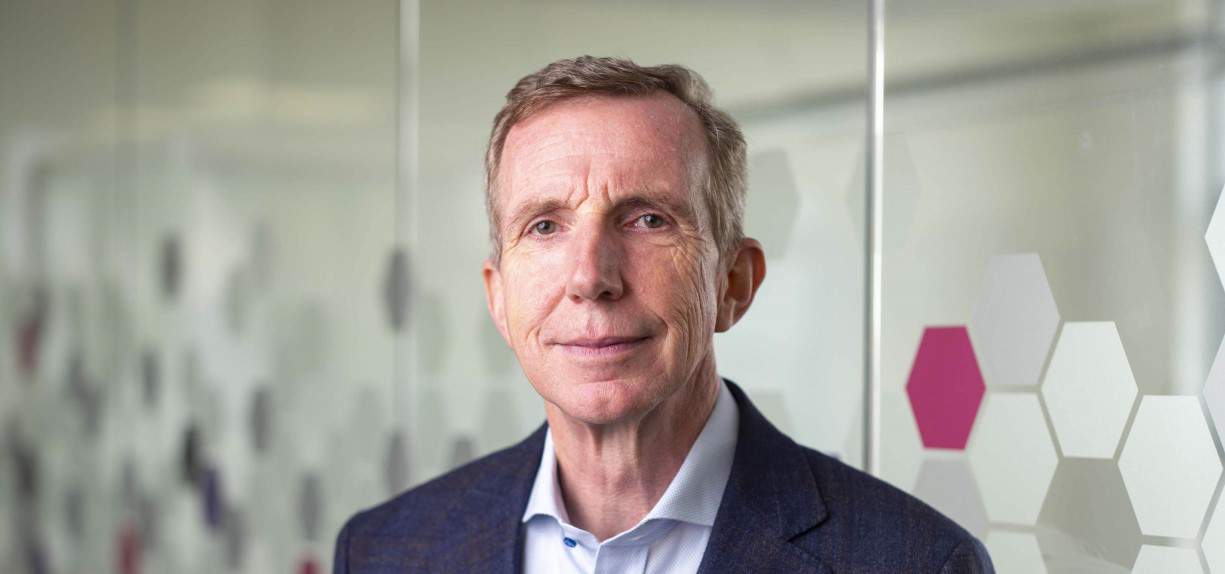Pictured: Karl Flannery, CEO & Co-Founder, Storm Technology
Karl Flannery is the CEO and Co-Founder of Storm Technology, a business technology consultancy firm. Flannery has built the firm over the last 25 years with the aim of supporting Irish businesses on their digital transforamtion journey.
What are your main priorities and goals in your role?
As CEO of Storm Technology, my role is all about driving business resilience, profitability, and sustainable growth.
At the same time, I’m responsible for ensuring we have the cash (or access to it) to grow the business and the right talent to build a diverse organisation – which means not just retaining and attracting skilled people but also helping them to develop.
In addition, I believe it is essential to remain focused on establishing and maintaining strong relationships with key external stakeholders, including customers, suppliers, partners and other agencies.
What are your biggest challenges as CEO?
I’d say events over these last number of years, such as the pandemic, have been particularly disruptive.
Building resilience in the organisation has been key to mitigating the impact of these unforeseen events and where the situation warrants it, to identify and seize new opportunities when they arise.
How do you keep your team/staff motivated?
It comes down to creating a culture where people are enabled to grow and empowered by the opportunity to continue learning on the job.
We offer people variety and the ability to make a meaningful contribution through what they do, equipping them with a sense of agency.
What are the challenges facing the industry going forward?
Firstly, I’d say the risk of overpromising on the value of the technology, particularly newer solutions such as Artificial Intelligence (AI).
Secondly, while it has improved and continues to do so, the level of diversity in the tech sector is nowhere near where it should be.
Thirdly, it would have to be the skills shortage. The availability of and accessibility to talent needs to be addressed and increased. We need to see more young people electing to study STEM subjects. Interlinked with this is the ongoing life-long upskilling of the workforce, which is a joint responsibility between organisations and individuals who work in the industry.
What new trends are emerging in your industry?
When you think about the digital tech sector, probably the biggest emerging trend is AI. This has been a technology that has been around in various forms since it was first coined in the late 1950s and it finally feels like we are at an inflection point with it, especially in terms of narrow AI.
Are there any major changes you would like to see in your sector?
As a sector, we need to get to grips with cybersecurity. In this day and age, it is not acceptable that an organisation’s IT systems can be used as a vector for criminal activity, be that to extort a ransom or cause reputational damage.
Also, we need to work with EU regulators to support the ethical use of AI, but at the same time ensure these regulations don’t reduce our ability to innovate and compete on the world stage with its application and implementation.
As an employer are you finding any skill gaps in the market?
Yes. Generally, it’s challenging to find experienced digital technologists, particularly in the areas of data science and AI. Also, I’d say there are gaps across key platforms from Microsoft, such as Dynamics365 and Azure.
How has Brexit affected you?
COVID-19 has probably masked some of the Brexit effects on the Irish and UK economies. I think we are now seeing it, particularly in the UK, with an underperforming economy relative to other EU economies.
This means we will be more inclined to look for growth opportunities in the EU rather than the UK.
How has the COVID-19 crisis affected your business/sector?
It was a double-edged sword. Yes, there was an acceleration in the digitalisation of key processes and a rapid adoption of collaboration technologies.
However, certain sectors we operated in were deeply impacted by it – for example, aviation and hospitality – and are only now recovering. Either way, the key for us was focusing on how we could support and drive success for our clients during this time.
How do you define success and what drives you to succeed?
For me, it’s the year-on-year growth in all dimensions of the business and the sense of accomplishment as we build the foundation for a meaningful and profitable future for all stakeholders.
What’s the best advice you’ve been given, or would give, in business?
You can’t do it all or know it all – therefore, surround yourself with an excellent, diverse team of people.
What have been your highlights in business over the past year?
Working with our clients to identify and adopt the right solutions and seeing the business impact those systems deliver across their organisation.
Also, I’d have to say the ongoing learning and development of our staff, and the impact they are having on both our business and that of our clients.
What’s next for your company?
As an organisation, we continue to look to the next growth opportunities, to build on what we’ve achieved to date, and to provide our clients with the digital technology direction to drive their sustainable business growth.
Where do you want your business/brand to be this time next year?
We are driven by client success. We aspire to be known for providing unrivalled customer experience, delivering solution excellence, and maximising client impact.



